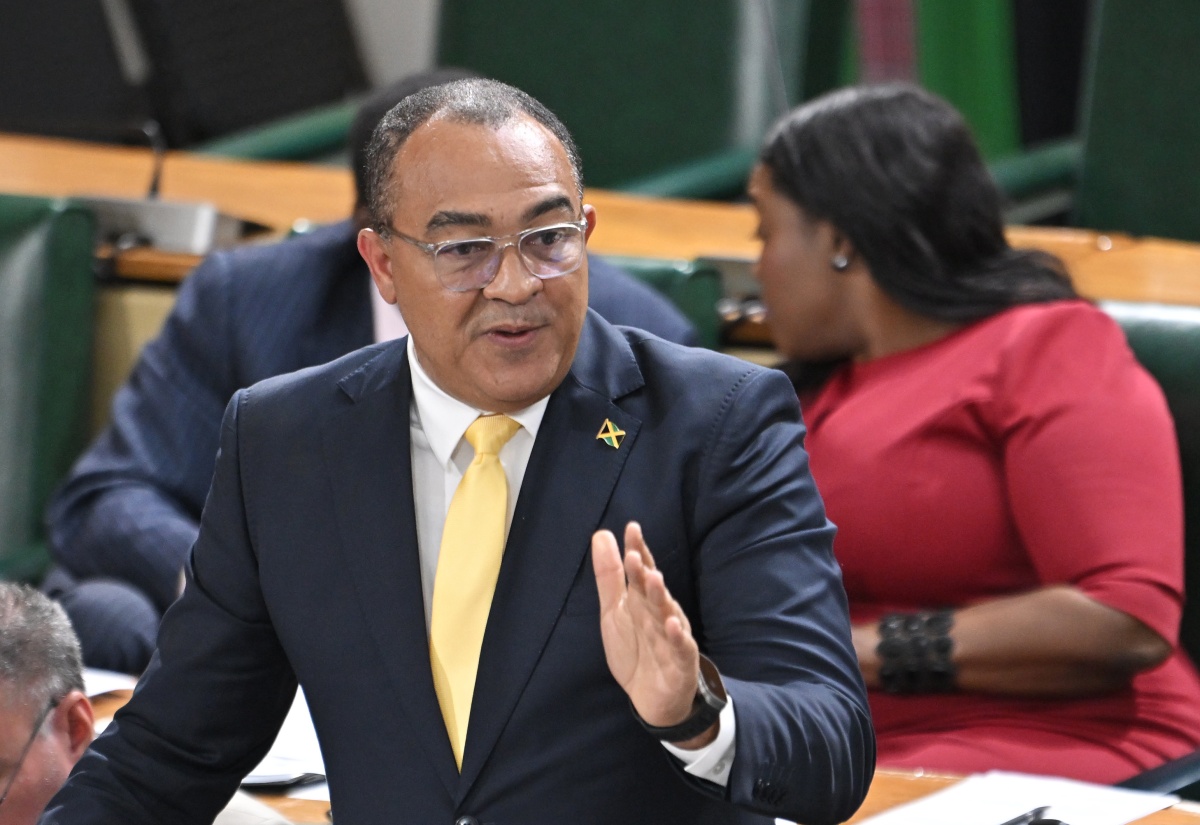Health Ministry Unveils Three-Phase Hurricane Melissa Response Programme
By: , November 13, 2025The Full Story
The Ministry of Health and Wellness has developed its Hurricane Melissa Response Programme, which will be undertaken in three phases.
Portfolio Minister, Dr. the Hon. Christopher Tufton, says phase one, which is the relief phase, will focus on reinstating health services, saving lives, and preventing disease.
“Phase one will occur over three months. Phase two of the programme has the objective of re-establishing all health services to pre-hurricane levels, and phase three is our reconstruction phase where we build back better, based on the lessons learned from Hurricane Melissa,” he outlined.
Dr. Tufton was making a statement to the House of Representatives on Tuesday (November 11).
The lion’s share of Hurricane Melissa’s impact has been felt across the Southern, Northern, and Western Regional Health Authorities.
These include the parishes of St. Elizabeth, Clarendon, Manchester, St. James, Hanover, Westmoreland, St. Ann and Trelawny.
Dr. Tufton informed that seven hospitals located along the southern and western belts of the island sustained catastrophic roof and infrastructure damage.
These facilities include Black River Hospital (St. Elizabeth), Noel Holmes Hospital (Hanover), Falmouth Hospital (Trelawny), Cornwall Regional Hospital (St. James), Savanna-la-Mar Hospital (Westmoreland), and St. Ann’s Bay Hospital (St. Ann).
The Minister further indicated that Bellevue Hospital in Kingston also sustained damage during the hurricane’s passage, including roofing system failure, damage to biomedical equipment, electrical and sanitation systems, and the storm-water infrastructure.
“Based on our assessment, we have been able to re-establish operations at the St. Ann’s Bay Regional Hospital, with the exception of the Dietary Department. Cornwall Regional has lost bed capacity of about 200, Falmouth Hospital lost some 65 per cent of its roof and sustained severe damage to laboratory and radiological services. The Savanna-la-Mar Hospital [had] 65 per cent damage to the roof along with other flooding damage and storm surge, [and] Black River Hospital has seen the most significant damage with the hospital being decommissioned in the short term,” Dr. Tufton said.
The Minister further stated that Hurricane Melissa’s onslaught has disrupted progress in primary care reform, with more than 100 health centres across the four Regional Health Authorities sustaining damage—including compromised roofing, fencing, and water systems—which has severely impacted service delivery to the population.
Dr. Tufton emphasised that the Ministry is committed to restoring primary healthcare services in the shortest possible time.
“To date, our healthcare professionals have aligned themselves to this mission and already, despite the challenges being faced in these facilities, attendance rates to work average 79 per cent, enabling critical primary care services for maternal and child health, HIV treatment and care, and immunisation and other curative services,” he stated.
Meanwhile, Dr. Tufton said that as part of the Ministry’s overall strategy, Phase One of the response programme requires the implementation of five key components.
“Already, the Ministry has mobilised and activated all components of the plan within this phase. These components include the rapid assessment of all health facilities; the repair and mobilisation of health infrastructure to restore basic services; our mass environmental health migration actions; psycho-social and mental health interventions; and our staff welfare actions,” he stated.
Dr. Tufton informed that the Ministry, in collaboration with its partners—the Pan American Health Organization (PAHO) and United Nations Children’s Fund (UNICEF), with support from the National Health Fund (NHF)—has commenced the national assessment, noting that “we have completed 40 per cent of that programme.”
“At the end of the assessment programme, we will be able to provide better estimates on the programme of work that will be required for the next phase, which is our rehabilitation phase,” he added.
The Minister stated that teams from the NHF, with support from Doctors Without Borders and PAHO, have commenced the development of Bills of Quantities to initiate the necessary procurement processes in accordance with the law.
Of the five hospitals located in the western and southern regions, Cornwall Regional Hospital has been reconnected to Jamaica Public Service Company (JPS) services, and roofing repairs have already commenced, according to Minister Tufton.
Noel Holmes Hospital and Savanna-la-Mar Hospital remain fully operational, utilising existing generators.
“While water supply has been restored to Cornwall Regional and Falmouth Hospitals, challenges remain with volume adequacy, necessitating continued water trucking to both facilities.
Dr. Tufton expressed gratitude to the international donor community for their support in establishing three field hospitals and nine temporary primary care facilities, all of which are either fully operational or scheduled for completion by the end of the week.
To support ongoing efforts, Type II field hospitals—offering a full range of services—have been deployed in Falmouth and Black River.
This week, a third Type II field hospital will be established at the Savanna-la-Mar Hospital in Westmoreland.
Dr. Tufton explained that the establishment of these field hospitals will increase bed capacity by approximately 150 spaces.
He also informed that nine primary care support facilities have been deployed across various parishes to strengthen the delivery of primary healthcare services.
“It is our target to ensure that all Type V, IV and III health facilities are providing basic services by Friday, November 21,” Dr. Tufton said.




